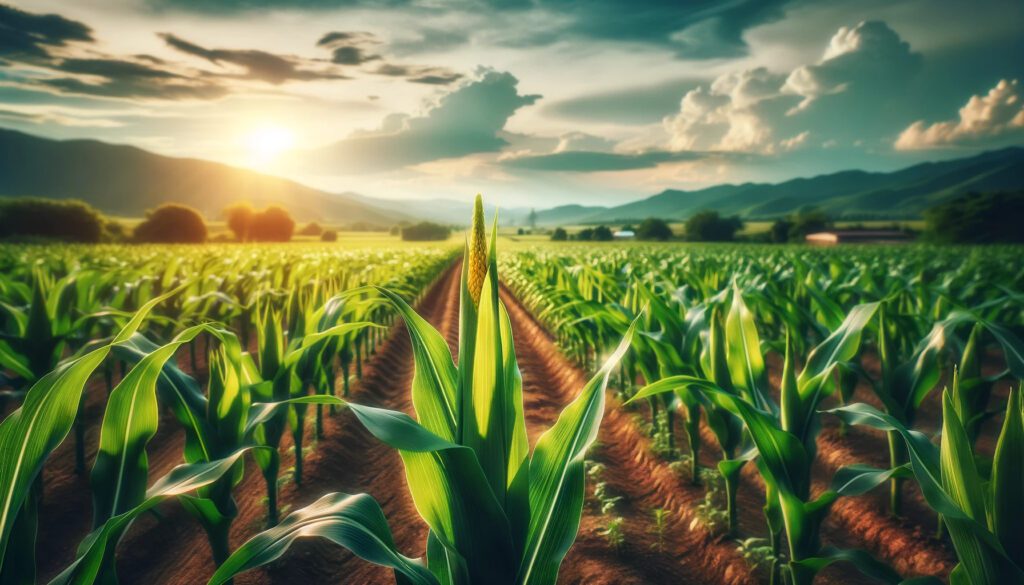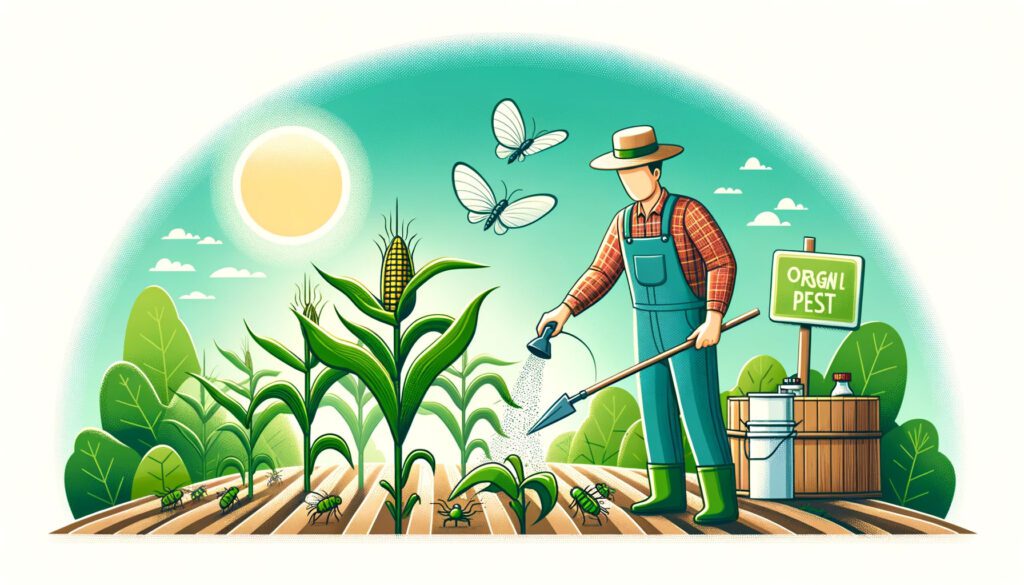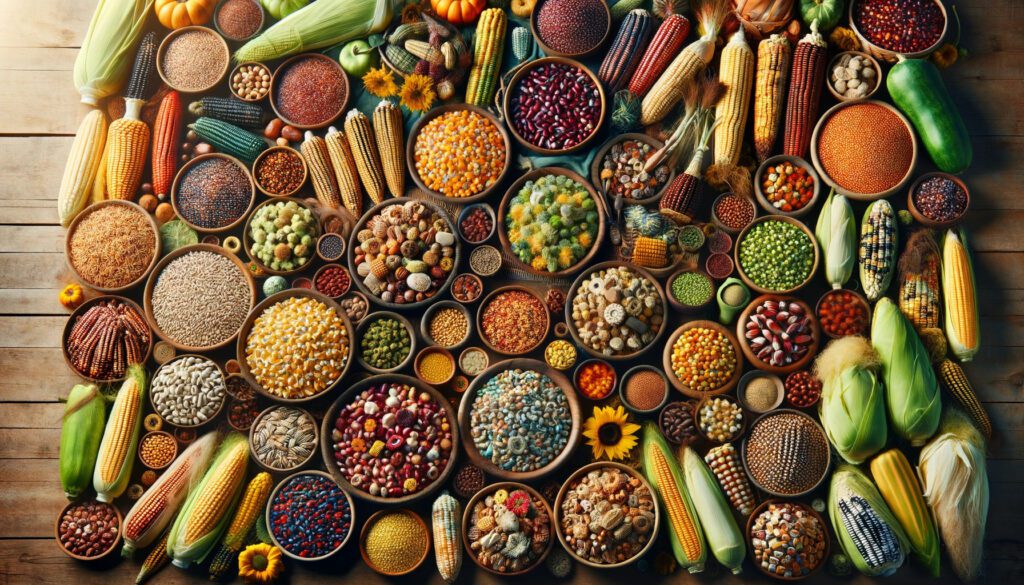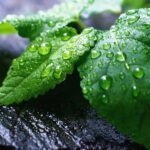Use of Compost and Other Organic Fertilizers in Organic Corn Production
In organic corn production, compost and organic fertilizers are essential for maintaining soil health and providing nutrients to the plants. Compost, made from plant remains and organic matter, improves soil structure, its ability to retain water and nutrients. Organic fertilizers, such as manure and guano, provide nutrients more gradually than synthetic ones, avoiding over-fertilization and environmental damage. It is recommended to perform soil analysis to determine specific nutrient needs and apply compost and organic fertilizers according to these needs. Additionally, crop rotation and the cultivation of legumes can naturally enrich the soil.

Compost for Organic Corn Production
To make compost for organic corn production:
- Gather Organic Materials:
- Choose an Area for Your Composter:
- Place the composter in an accessible but not overly exposed location.
- Build the Compost Pile:
- Alternate layers of green and brown materials.
- Maintain a balanced ratio for efficient breakdown.
- Maintain Moisture and Aeration:
- The pile should be moist but not saturated.
- Turn the pile regularly for aeration.
- Monitor the Process:
- Compost will be ready when it looks and smells like fertile earth.
- Application in Corn Cultivation:
- Incorporate compost into the soil before planting the corn.
- This will enrich the soil and provide essential nutrients.
The use of compost is an excellent way to improve soil health in organic agriculture, providing nutrients and enhancing soil structure for corn cultivation.

10 products that can be used as fertilizers for organic corn production
- Compost: Decomposed organic material, rich in nutrients, and excellent for improving soil structure.
- Chicken Manure: Rich in nitrogen, phosphorus, and potassium, it is an effective fertilizer when properly composted.
- Cow Manure: Provides a wide range of nutrients and improves soil fertility.
- Bat Guano: A powerful fertilizer rich in nitrogen, phosphorus, and trace elements.
- Bone Meal: Source of phosphorus and calcium, ideal for root and flower development.
- Blood Meal: Rapidly available nitrogen source, useful for promoting vegetative growth.
- Pig Slurry: Rich in nutrients, especially when composted to reduce its strength and avoid burns.
- Liquid Fraction of Bovine Digestate: Product of anaerobic digestion processes, rich in available nutrients.
- Solid Fraction of Bovine Digestate: Similar to the above but in solid form, useful for improving soil structure.
- WWTP Sludge (Wastewater Treatment Plant): Rich in organic matter and nutrients, should be used with caution and monitoring to avoid contaminants.
Each of these fertilizers offers unique benefits and should be applied considering the specific needs of corn cultivation and soil characteristics. Furthermore, it is always recommended to follow organic management practices and local regulations for their use.
Guide to the application of compost or organic fertilizers at each stage of corn phenology
Remember that the quantity and type of fertilizer depend on soil characteristics and the specific needs of the crop. It is advisable to perform soil tests to adjust applications precisely.
- Pre-planting: Apply well-decomposed compost or manure to the soil a few weeks before planting to allow for integration and stabilization in the soil.
- Planting: During planting, you can incorporate an additional layer of compost near the seeds to provide initial nutrients.
- Emergence and Establishment (VE-V6): Additional fertilizers are not necessary at this stage if the soil was well prepared initially.
- Vegetative Development (V6-VT): This is a crucial stage for root and leaf development. A light application of nitrogen-rich fertilizer can be beneficial.
- Flowering and Ear Formation (VT-R1): Apply a balanced fertilizer to support ear formation.
- Grain Filling (R2-R6): A gentle application of compost or organic fertilizer rich in potassium can help with grain development and ripening.
Organic Corn Production. Pest and Disease Control
In organic corn production, pest and disease control focus on non-chemical and sustainable methods. These include:
- Crop Rotation: Alternating corn with other crops to break the cycle of pests and diseases.
- Biological Control: Use of natural predators, such as ladybugs and parasitoid wasps, to control pest populations.
- Physical Barriers: Crop nets or covers to protect against insects and birds.
- Varietal Resistance: Using corn varieties resistant to diseases and pests.
- Weed Management: Keeping the field clean to reduce pest habitats.
- Cultural Practices: Such as proper tillage and crop residue removal to reduce disease incidence.
- Biopesticides: Use of pesticides derived from natural sources.

The organic approach prioritizes ecological balance and prevention over the direct elimination of pests or diseases.
Biological Control in Organic Corn Production
Biological control in organic corn production involves using living organisms to naturally control pests. This strategy focuses on introducing or promoting natural predators and enemies of common corn pests. Some examples include:
- Beneficial Insects: Such as ladybugs, which feed on aphids, and parasitoid wasps, which lay their eggs in corn pest larvae.
- Nematode Control: Use of beneficial nematodes that attack larvae and other harmful insects for corn.
- Entomopathogenic Fungi and Bacteria: Organisms like Bacillus thuringiensis (Bt) produce toxins that are lethal to certain insect pests but not harmful to other animals or humans.
- Birds and Other Animals: Attracting native birds and other animals that feed on insects can be an effective strategy.
Biopesticides for Organic Corn Production
Biopesticides are pesticides derived from natural materials such as plants, bacteria, fungi, and certain minerals. In organic corn production, biopesticides play a crucial role in integrated pest and disease management. They are generally less toxic than conventional pesticides, specific in their action, and break down rapidly, reducing contamination and risks to human health and the environment.
Some common examples of biopesticides used in organic corn cultivation include:
- Bacillus thuringiensis (Bt): A bacterium that produces toxins lethal to certain insects. Bt corn varieties, modified to express this toxin, are an option in some organic systems, though not all.
- Essential Oils and Plant Extracts: Natural products derived from plants that act as repellents or insecticides. Examples include neem, pyrethrin, and eucalyptus oil.
- Entomopathogenic Fungi: Such as Beauveria bassiana and Metarhizium anisopliae, which infect and kill pest insects.
- Microorganism Extracts: Some biopesticides are derived from secondary metabolites produced by microorganisms, which have insecticidal or fungicidal properties.
- Natural Biological Controllers: Like beneficial nematodes that attack insect larvae in the soil.

The use of biopesticides requires detailed knowledge of pests, their life cycle, and the crop ecosystem. Their effectiveness can be influenced by factors such as climate, application, and pest population. Additionally, it is essential to integrate biopesticides into a broader approach to integrated pest management for effective and sustainable control in organic corn production.
 AgronoBlog – Agriculture Blog
AgronoBlog – Agriculture Blog 


